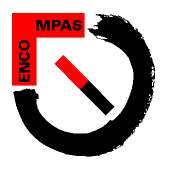


|
The following article was published as an instalment of Alexia
Petersen's series
English in the job in issue
1/2003 (April 2003) in the magazine Personal.Manager - HR International. We're making
it available on our web site as a sample article. If you are
interested in further articles of this series, we would suggest
subscribing to the magazine, which is published by
Datakontext
Copyright © 2003, Datakontext-Fachverlag GmbH,
Frechen, Germany,
www.datakontext.com
|
Alexia Petersen
The most defining feature of the English language, according to my students, is politeness. In class, students compile neat lists of "polite English" and labour to make sentences sound "less German". Yet a typically English sentence like "That's not entirely incorrect" always creates some confusion. Is it, or isn't it actually polite?
Especially Business English students learn quickly to spice up their sentences with polite vocabulary and to apologise ("I'm sorry", "I'm so sorry", "I'm terribly sorry", "I'm afraid") with committed regularity. This, however, still misses the point of acquiring good English skills: how to sound polite without actually saying "please" and "I'm sorry, but...". Upgrading from "Please wait outside for a few minutes" ("German-English") to "Could I just ask you to wait outside for a few minutes?" ("English-English") is the difference between learning polite vocabulary and hitting the right tone in a foreign language.
For the German language learner who needs "hi-fi" English language skills for the job this requires a different approach to language learning. For one, he should be aware that he's likely to speak English the way he speaks his native language. German, for example, tends to use the imperative voice in ordinary conversation ("Ich rufe Sie morgen an" or "Es geht heute nicht, weil...") much more than English does ("Why don't I give you call tomorrow?" or "It might not get done today because..."). Polite requests in German can often be buffered by using "bitte" alone ("Rufen Sie mich bitte morgen nochmal an"). German Sachlichkeit, in other words, produces quite another tone. Keeping it clear and direct is both an efficient and effective way of communicating - especially in business - to avoid unnecessary misunderstandings and confusion. If, that is, you are communicating with other Germans.
When using English to communicate with people from other cultures, however, keep in mind that English, and especially Business English, has quite a different tone. It can be, and is, very factual and direct when a situation demands it, especially in response to Sachfragen. Depending on who one is talking to or how sensitive the topic is, tone tends to become more indirect and language carefully buffered (abgefedert) the trickier (kniffliger) a situation becomes.
Note that adding "please" to "Please make sure you don't do that again" does not "cushion" against a harsh tone as effectively as "You should perhaps try to be more careful about that in the future" or "Care should perhaps be taken to avoid this in the future". Both sentences hit a much politer tone, though neither uses "please". Note too that English often uses the more diplomatic passive voice ("something is done" rather than "you do something") to make criticisms and complaints, or to point out an error. The absence of "you" enables emphasis to be placed on the error or its consequences, rather than on the person who made the mistake. This may sound to Germans like a less efficient way of speaking (it certainly takes more words, and therefore time!). Depending on the situation or person you are talking to, however, this could in fact prove to be more effective communication.
Here are some ways to "upgrade" your English. Train yourself to express "No", "I disagree", "This is not acceptable" or "You didn't do this" without actually using these expressions. Unless you are answering to a clear Sachfrage, try to
This doctor's reaction is of course an extreme example even for a native speaker. Nonetheless, it does make an important point about English understatement. To German ears it may sound so artificially soft as to trivialise the gravity of the situation. The point here is, given the sensitive situation, it was an appropriate and effective tone in English. Being "not too happy" hits quite another tone than being "unhappy". Understating the language in fact underlines the severity of the reprimand.
This example illustrates, therefore, another important point. Being clear doesn't automatically mean being direct in English. The effective diplomat is ever aware of the interpersonal (zwischenmenschliche) context in which facts are communicated. Understating the obvious doesn't compromise Sachlichkeit; it does however preserve "face" by focussing instead on problem solution. In this case, the senior doctor's verbal reaction can be seen as very effective personnel management!
Unlike German, which tends to get to and highlight the "but..." part of a sentence as quickly as possible, English sentences make great efforts to soften the blow. This is not only the essence of English; it is also where the potential of Business English as an intercultural communication tool is often overlooked by Germans. Business English is not some separate kind of English from "Normal English". More than just lists of specialised vocabulary, it highlights especially those tricky situations where English, being neither very direct nor very indirect, hits a more effective mediatory tone.
So, what should German businesspeople be especially aware of when using English to communicate more sensitive issues such as criticisms, complaints, and disagreement across cultures? Here are some tips:
Let me end then with another Golden Rule: The more sensitive the interpersonal context is in which you have to complain, criticise, or disagree, the softer your tone should be. Unless a situation really requires otherwise, aim for a softer tone than you would use in German.
| Last changes to this page: 2005/03/12 |
Copyright © 1999-2019 A. & S. Petersen www.aspetersen.de |